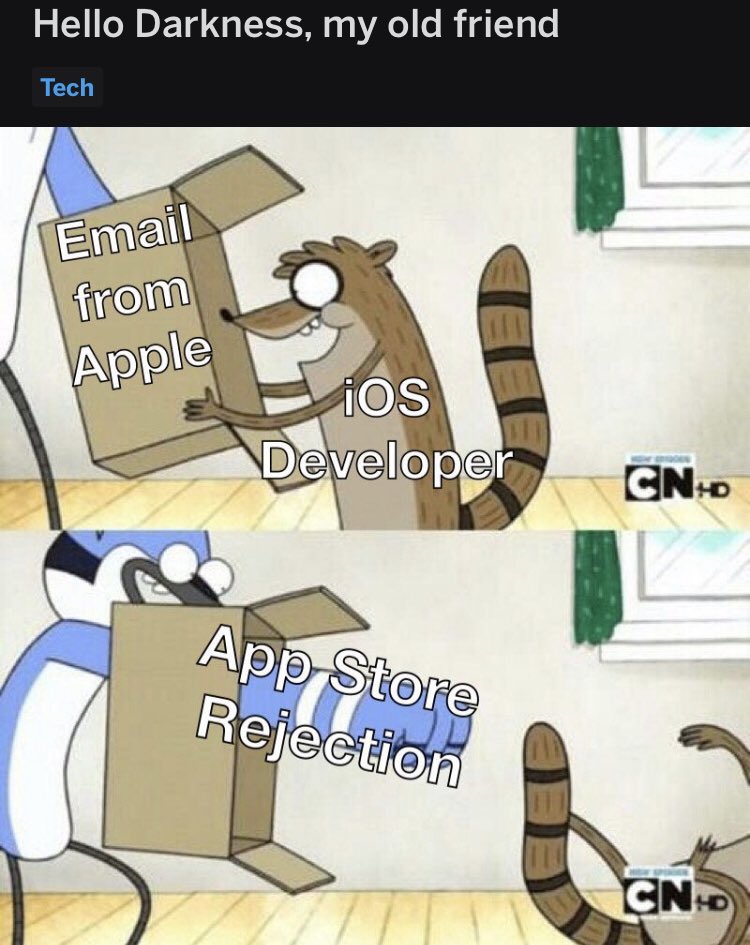Well they have one hell of a “good thing” (for them) going. Why mess with it?I was just looking for context and was confused.
Looks like there still isn't side-loading coming, but weird alternative stores that still need to pass Apple's approval, which defeats the purpose of alternative stores. I get the security thing, but Apple is being as stubborn as humanly possible.
Work makes me work enough so the brain dead stupidity of iOS is a welcome thing when I get home. So personally I’m fine with it, and professionally it irks me, but that’s what the bar is for.
![[H]ard|Forum](/styles/hardforum/xenforo/logo_dark.png)
